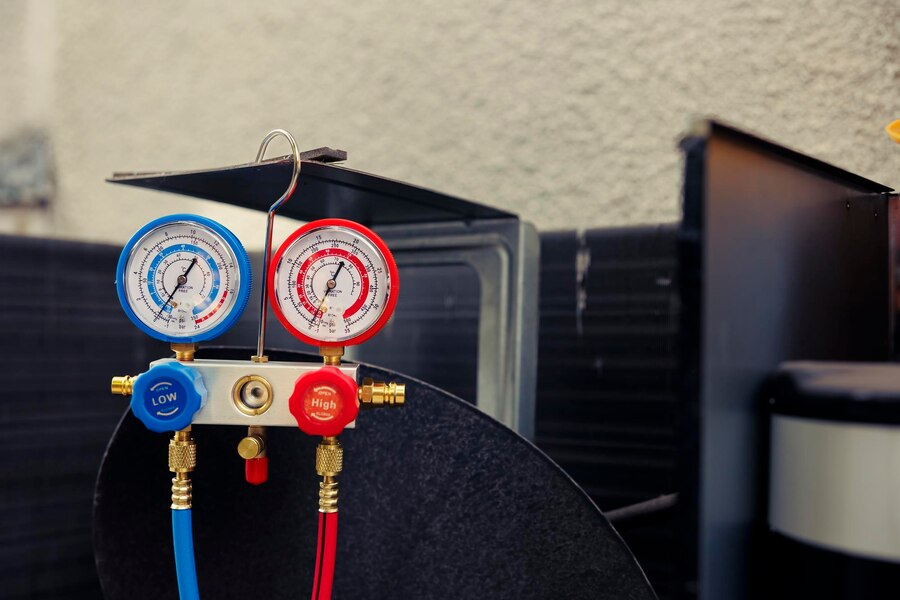Introduction
The heating, ventilation, and air conditioning (HVAC) industry is undergoing a technological revolution. Traditional HVAC systems are being transformed by smart technology and automation, offering homeowners and businesses unprecedented control, energy efficiency, and convenience. With advancements in artificial intelligence (AI), the Internet of Things (IoT), and automation, the future of HVAC is set to redefine indoor comfort.
Smart HVAC Systems: A Game Changer
Modern HVAC systems are no longer just about heating and cooling; they are about intelligent climate management. HEATING AIR CONDITIONING SERVICE providers are now integrating smart thermostats, AI-driven diagnostics, and remote access features to enhance user experience. These smart systems use real-time data to optimize temperature settings, monitor air quality, and even predict potential failures before they occur.
Smart HVAC systems offer several benefits, including:
- Energy Efficiency – AI-powered thermostats learn user preferences and adjust heating and cooling accordingly, reducing energy waste.
- Cost Savings – Automated HVAC systems help lower energy bills by ensuring that heating and cooling are only used when needed.
- Remote Access & Control – With mobile apps, users can control their HVAC systems from anywhere, ensuring a comfortable home upon arrival.
- Predictive Maintenance – Smart sensors can detect system inefficiencies and alert homeowners before major breakdowns occur.
Automation: The Future of HVAC Efficiency
Automation plays a crucial role in the next generation of HVAC systems. With machine learning algorithms, these systems can analyze data from multiple sensors to adjust settings dynamically. For instance, smart vents can open or close based on occupancy, ensuring optimal airflow distribution.
Moreover, AI-powered automation enables self-diagnosing systems. Instead of waiting for a system failure, automated HVAC units can notify technicians about potential issues in advance. This predictive approach reduces emergency repairs, extends the lifespan of HVAC systems, and minimizes downtime.
IoT-Enabled HVAC Systems
The Internet of Things (IoT) is reshaping HVAC by connecting multiple devices into a unified smart home ecosystem. IoT-enabled HVAC systems communicate with other smart appliances, such as lighting and security systems, to create a fully integrated home automation experience.
For example, a smart HVAC system can adjust the temperature based on real-time weather updates, automatically lowering cooling power during a cool evening or increasing heating before a snowstorm. Additionally, voice-controlled assistants like Amazon Alexa or Google Assistant enable hands-free control of HVAC settings.
Sustainable & Eco-Friendly Innovations
With rising concerns over climate change and energy consumption, sustainability is a key focus for HVAC manufacturers. Modern HEATING AIR CONDITIONING SERVICE providers are adopting eco-friendly solutions, such as geothermal heating, solar-powered HVAC systems, and energy-efficient refrigerants.
Some key sustainability trends in HVAC include:
- Geothermal Heat Pumps – Utilizing the earth’s natural heat to regulate indoor temperatures with minimal energy consumption.
- Smart Zoning Systems – Dividing a home or building into specific zones, allowing for customized climate control in different areas.
- Energy Recovery Ventilation (ERV) – Capturing and reusing indoor air energy to improve efficiency and reduce overall energy waste.
- Eco-Friendly Refrigerants – Replacing traditional refrigerants with environmentally safe alternatives that reduce carbon footprints.
Challenges & Future Prospects
While smart HVAC technology offers numerous benefits, some challenges remain. The initial cost of smart HVAC systems can be higher than traditional units, which may deter some homeowners from upgrading. Additionally, integrating automation into existing HVAC infrastructure requires skilled professionals who understand smart technology.
Despite these challenges, the future of HVAC is promising. As technology continues to advance, prices are expected to decrease, making smart HVAC solutions more accessible to homeowners and businesses alike. The continued integration of AI, IoT, and automation will lead to even more efficient and environmentally friendly HVAC systems, ensuring comfort, savings, and sustainability.
Conclusion
The HVAC industry is rapidly evolving with the adoption of smart systems and automation. With AI-driven diagnostics, IoT connectivity, and eco-friendly innovations, HVAC systems are becoming more efficient, cost-effective, and environmentally sustainable. As the demand for smart home solutions grows, HEATING AIR CONDITIONING SERVICE providers will play a crucial role in shaping the future of climate control. Investing in these advanced technologies will not only enhance indoor comfort but also contribute to a more energy-efficient world.





Comments